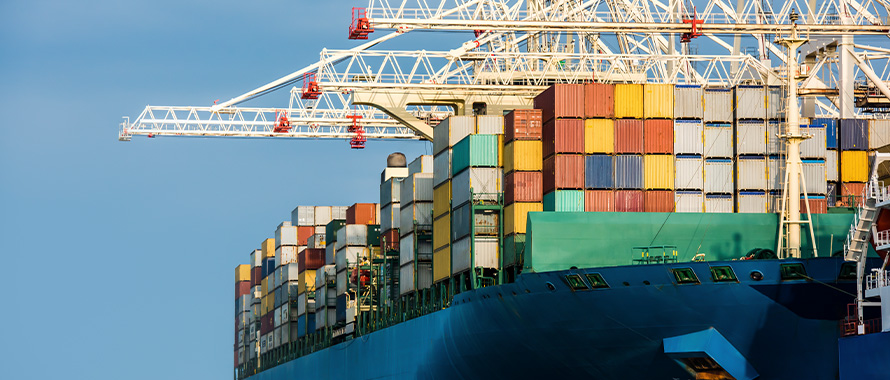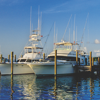At 2 a.m. on September 8, the U.S. Coast Guard stationed near St. Simons, Georgia, was alerted that the Golden Ray, a South Korean cargo vessel carrying over 4,000 new automobiles, had begun dangerously inclining to one side, shortly after departing the Port of Brunswick.
By late morning response teams had rescued 20 of the ship’s 24 crew members; however, flames, thick smoke and shifting cargo left the remaining crew members trapped in two inside compartments. Within hours, the 656-foot vessel completely rolled over onto its side, listing at 90 degrees. First responders pinpointed the crew members’ locations and all four were rescued in reasonably good condition on September 9.
Marine experts and officials from the Coast Guard are working to determine the best approach to salvaging and removing the Golden Ray and its cargo with minimal environmental damage and disruption to shipping traffic. Oil from the ship and possibly its cargo has leaked into St. Simons Sound and nearby waterways, according to the Coast Guard, and crews have begun the process of removing fuel from the ship’s hull.
The Port of Brunswick, one of the busiest U.S. automobile shipping ports, was closed for four days after the incident and as of press time remained open only on a case-by-case basis. The U.S. National Transportation and Safety Bureau (NTSB) and Coast Guard are investigating what caused the Golden Ray to capsize.
The ship’s cargo, worth several million dollars, is damaged and likely a total loss. According to Hyundai Glovis, the company that owns the Golden Ray, both the ship and its cargo are fully insured.
Whether cargo is shipped via rail, truck, ship or plane, and damaged or lost due to weather event, accident or theft, Cargo Insurance and other coverages are instrumental in mitigating losses. Cargo ship owners should be certain that all of their insurance policies adequately account for third-party potential property damage and third-party liability, said Mark Engel, Managing Director, RB Jones Marine, New York, New York.
“Maritime events are indiscriminate,” Engel said. “It does not matter if you are a large or small company. You could still be exposed to significant liabilities, just given the nature of the business.”
Cargo and marine vessels face significant threats
The global shipping industry is vast in volume and economic impact. According to the International Chamber of Shipping, more than 50,000 merchant ships transport 90 percent of globally-traded goods to ports worldwide. At any given time, 6,000 container ships are traversing global waterways, and the operation of merchant ships generates over $500 billion in freight rates annually. The U.S. is second only to China as an exporter of goods transported by liner ships.
Cargo vessel owners and the manufacturers and other businesses that ship goods by sea face a multitude of risks. Though what caused the Golden Ray to capsize remains unknown, some experts have speculated that unevenly distributed weight or shifting cargo may be to blame. According to the World Shipping Council, an average 1,582 containers were lost at sea annually from 2008 to 2016.
In addition to human error, fires, explosions and collisions can cause cargo loss and vessel damage, as can severe weather events. “Ships can be exposed to harsh weather conditions—hurricanes, typhoons, windstorms and tidal waves, to name a few,” said Patrick Barco, National Product Leader, Marine, Burns & Wilcox, Toronto, Canada.
Such events can also imperil crews, the natural environment, and populations living in the vicinity of incapacitated vessels or loose cargo.
On September 20, nine barges became unmoored in the San Jacinto River near Houston, Texas, and struck a bridge along the eastbound Interstate 10, shutting down the interstate for several days. In January, a Panamanian-flagged ship lost 270 containers of cargo due to rough weather near the German island of Borkum in the North Sea. A few days later, several containers washed up miles away on three Dutch islands. Three of the lost containers held hazardous materials.
Protecting marine vessels
For owners of commercial and cargo vessels, Protection & Indemnity (P&I) clubs provide coverage that can mitigate costs to a range of exposures, such as bodily injury or death, cargo damage or loss, pollution and wreck removal, salvage operation, and civil and collision liabilities. A P&I club is a mutual insurance association of marine insurance providers that provides broad coverage to mitigate risks for its members.
Hull & Machinery Insurance coverage is offered by marine insurance providers for ship owners to help mitigate the cost and business impact of physical damage to their vessels. “Hull & Machinery coverage is fairly standard across the industry, for large and small vessels,” remarked Engel. “It covers physical damage to the hull, whether caused by fire or explosion, as well as damage to machinery, equipment or navigation systems.” Coverage for collision liability is also available as part of a Hull & Machinery Insurance policy, he said.
Hull & Machinery Insurance policies vary based on whether they are for “brown water” vessels like tugboats and barges that operate in inland or coastal areas, or “blue water” vessels such as cargo ships used in international shipping or trade.
Colossal cost of cargo theft
Stolen cargo affects the stakeholders involved in its supply chain, but cargo theft also leads to higher costs of goods for consumers and lower tax revenue for governments.
The FBI reported that in 2017 alone nearly $22 million of cargo was stolen in the U.S.; only 26 percent of that stolen cargo was recovered. Cargo theft is also a serious problem in Canada. The Insurance Bureau of Canada’s Cargo Theft Initiative found the total annual cost of cargo theft to Canadian consumers, suppliers, manufacturers, insurers and governments is $5 billion.
In August the last of four members of a crime ring was sentenced for his role in the July 2016 theft of a refrigerated unit containing $1 million worth of lobsters from a New Brunswick company. In March 2017, Canadian authorities announced the arrest of 16 people in connection to that alleged multimillion-dollar crime network, which was responsible for $5.3 million in stolen goods. Law enforcement authorities recovered around $3 million in tractors, luxury goods, and food items stolen from cargo trucks in Quebec and New Brunswick.
Mitigating a myriad of cargo risks
Inland Marine Insurance covers damage or loss due to rigging accidents, refrigeration and breakdown costs, and incidents related to loading and unloading cargo. Much of the cost incurred from cargo loss while in the care, custody, and control of a carrier can be covered through an Inland Marine Insurance policy.
“(Business owners should) consult with their insurance broker or agent, who will guide them and give them advice on various exposures,” Barco said.
Cargo Insurance coverage varies depending on whether goods are shipped by air, land, or sea, Barco said. Other factors also impact coverage, limits and liabilities, including international and national regulations. In the U.S., the Carmack Amendment governs interstate shipment for motor transportation, and the Carriage of Goods by Sea Act (COGSA) regulates international shipping by cargo vessels.
Climate-change-related extreme weather events are also affecting coverage, Barco said. “The United States in particular is exposed to hurricane losses and North America has a history of storm, hail and flood losses,” he explained. “Earthquake losses can be astronomical and devastating.”
To ensure adequate coverage, Barco stressed, it is essential for business owners to provide their insurance brokers and agents with as much information as possible regarding the nature of the cargo and the security protocols in place to protect it.
Barco said that brown water vessel owners in particular often underestimate their liabilities. “The liabilities arising out of your ownership of the vessel can be considerable, much beyond what you’d expect,” he noted.





